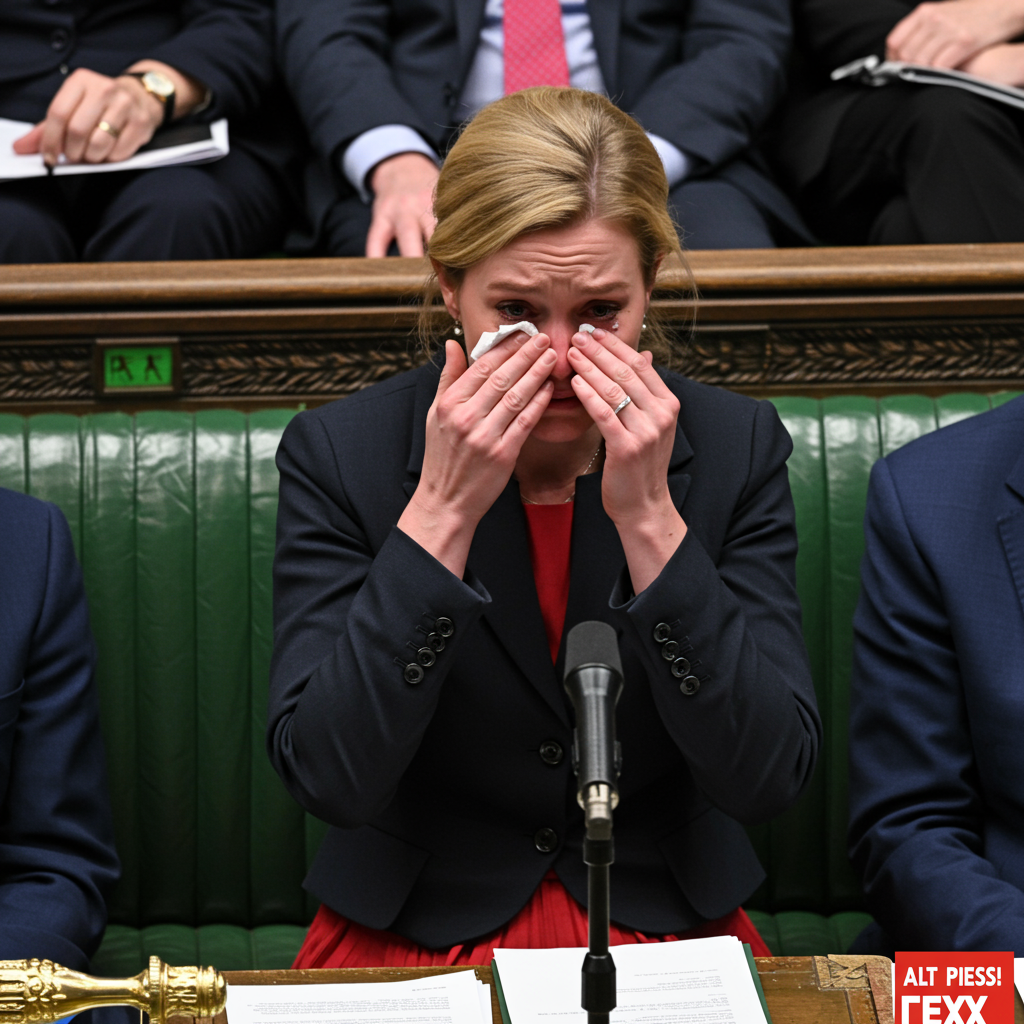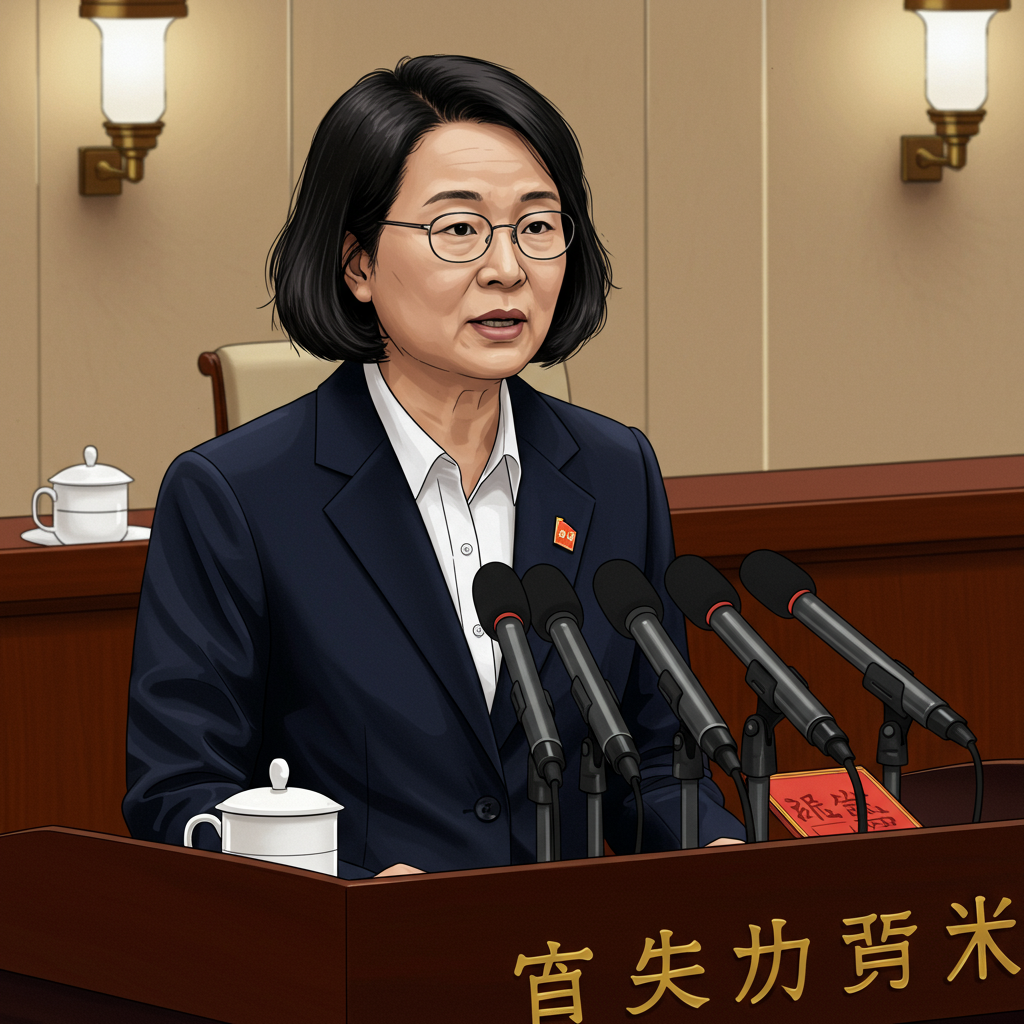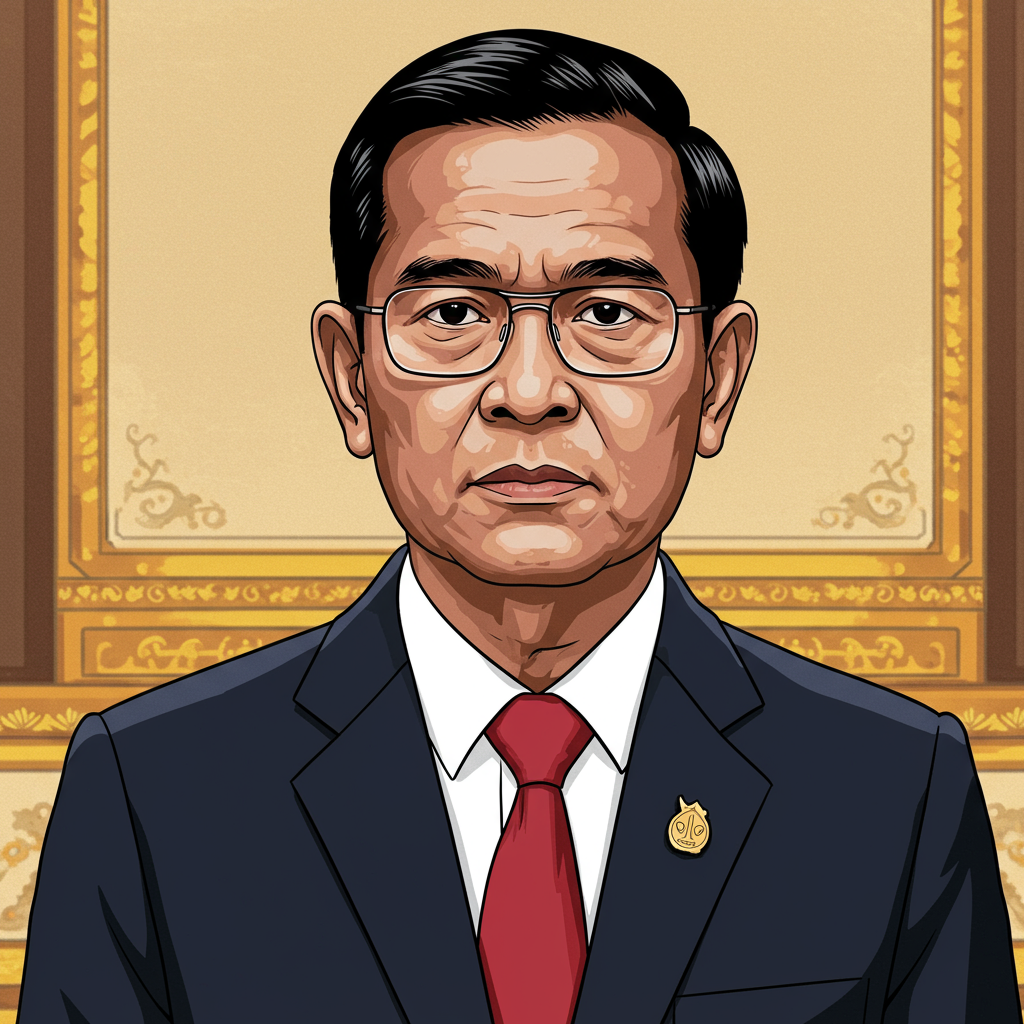A visibly emotional Rachel <a href="https://news.quantosei.com/2025/07/02/keir-starmer-endures-rebellion-in-parliament-over-welfare-cuts/” title=”Starmer Welfare U-Turn: Crisis in Parliament Revolt”>reeves was seen wiping away tears in the House of Commons during a charged Prime Minister’s Questions (PMQs) session. The dramatic moment unfolded amidst intense political scrutiny surrounding Labour’s recent forced U-turn on key welfare reforms. While the Shadow Chancellor’s tearful appearance dominated headlines, it was quickly followed by firm declarations of support from Labour leader Sir Keir Starmer, seeking to quell speculation about her future. The incident and the preceding policy reversals also triggered a negative reaction in financial markets, highlighting the delicate balance of political stability and economic confidence.
An Emotional Display During PMQs
The extraordinary scene occurred as Conservative leader Kemi Badenoch launched a sharp attack on the Labour government. Badenoch focused on the recent decision to abandon significant parts of the welfare bill, which aimed to save £5 billion but faced a major rebellion from Labour MPs. During her questioning, Badenoch pointedly asked Sir Keir Starmer whether Rachel Reeves would remain Chancellor until the next election. She described Reeves, who was seated behind Starmer, as looking “absolutely miserable.” Badenoch further alleged that some Labour MPs considered the Chancellor “toast,” branding her a “human shield” for what she called the Prime Minister’s “incompetence.”
Sir Keir Starmer’s initial response in the chamber did not explicitly confirm Reeves’ long-term position. Instead, he defended the welfare reforms as a measure to help people return to work. He attributed the nation’s economic challenges to years of what he termed Tory “stagnation.” While Starmer defended the policy approach, his reluctance at that specific moment to issue a categorical guarantee about Reeves’ future fuelled immediate speculation. Reeves herself was seen wiping away tears as the exchanges continued.
Starmer’s Resolute Backing Post-PMQs
Shortly after the heated PMQs session concluded, Sir Keir Starmer offered a staunch defence of his Shadow Chancellor in an interview with BBC Radio 4’s Political Thinking with Nick Robinson. This later intervention provided a much clearer statement on Reeves’ security in her role. Starmer emphatically stated that Rachel Reeves was “doing an excellent job as chancellor.” He declared that she would remain in her position “for a very long time to come” and “remain in government.”
The Labour leader stressed the strength of their working relationship. He highlighted that he and Reeves work “in lockstep,” emphasizing a unity of purpose between them. Starmer contrasted this positively with historical instances where Prime Ministers and Chancellors were not aligned. This post-PMQs messaging from Starmer and subsequently from Downing Street – which affirmed Reeves has “full backing” and is “going nowhere” – aimed to counteract any perception of weakness or potential change at the top of the Labour Treasury team.
The Question of Reeves’ Tears
Immediately following her visible distress in the Commons, a spokesperson for Rachel Reeves stated that her appearance was due to a “personal matter.” Sir Keir Starmer reiterated this explanation in his BBC interview, insisting the tears had “nothing to do with politics” or the significant welfare policy U-turn that had just unfolded. He declined to provide further details, citing the need to respect her privacy regarding the personal issue.
However, within Westminster circles, another potential explanation circulated among some of Reeves’ colleagues and allies. This theory suggested her upset might have stemmed from a sharp exchange with the Commons Speaker, Sir Lindsay Hoyle, shortly before PMQs. This alleged interaction was reportedly related to a previous request from the Speaker for Reeves to give shorter answers during Treasury questions the day before. While this suggestion was put forward, sources speaking to the BBC did not claim to have directly witnessed this specific alleged confrontation. Both Rachel Reeves’ team and the Speaker’s office declined to comment on this particular theory.
Political Context: The Welfare U-Turn Fallout
The backdrop to the day’s events was the significant political setback faced by the Labour government earlier in the week. Labour was forced into a major U-turn on a core part of its welfare reform bill. This involved abandoning planned cuts, particularly affecting Personal Independence Payments (PIP), to avert a potentially damaging rebellion from a substantial number of their own MPs. The proposed changes were intended to save around £5 billion.
The government ultimately pushed through a heavily amended version of the bill. The revised legislation passed its second reading with a majority of 75, but only after significant concessions were made. This climbdown resulted from the largest rebellion Starmer has faced since becoming Labour leader, with 49 Labour MPs voting against the bill. This rebellion size exceeded previous records for a leader in their first year. The U-turn demonstrated significant dissent within the party and raised questions about the strategy and consultation process behind the original proposals.
The £5 Billion Fiscal Hole and Tax Implications
A direct consequence of abandoning the planned welfare cuts is the creation of a substantial £5 billion gap in the government’s financial plans. This fiscal challenge places increased pressure on Chancellor Rachel Reeves and the Treasury team. Ministers and Treasury sources have been explicit about the significance of this gap. Cabinet Office minister Pat McFadden highlighted that the money foregone on welfare cuts means less is available for other spending priorities.
Treasury insiders and allies of Reeves have argued that this £5 billion hole must be filled. They suggest this could necessitate difficult choices, potentially including tax rises or cuts elsewhere. This has implications for other popular Labour policies, such as the estimated £3.5 billion cost of scrapping the two-child benefit cap. Allies argue that MPs who pushed for the welfare U-turn must now confront the financial reality and explain how alternative spending priorities would be funded.
Helen Miller, from the Institute for Fiscal Studies (IFS), has commented that given existing spending plans are largely set and other benefit cuts have been abandoned, tax rises appear increasingly likely. When pressed by Kemi Badenoch during PMQs on ruling out future tax increases, Sir Keir Starmer avoided a direct commitment, stating that no Prime Minister or Chancellor pre-writes future budgets. This suggests the door remains open for potential tax adjustments as the government seeks to manage its finances following the welfare reform difficulties.
Conservative Criticism and Market Instability
Conservative figures seized upon the events to attack the Labour leadership and Rachel Reeves. Kemi Badenoch’s comments during PMQs set the tone, describing Reeves as “absolutely miserable” and a “human shield.” Shadow Justice Secretary Robert Jenrick went further in later commentary, suggesting Reeves’ career was “dead” after the “embarrassing” U-turn and calling for her resignation. Jenrick also questioned the explanation of a “personal matter,” arguing that such matters are typically disclosed if used to explain public appearances. He later added that he hoped her personal matter was resolved but criticised Starmer for not supporting her adequately during PMQs, suggesting he had “thrown her under the bus.”
The political turmoil in the Commons appeared to unsettle financial markets. Following the events, the pound fell against major currencies, and the cost of government borrowing rose. UK government bond prices experienced their largest fall in some time, and the yield on the 10-year government bond saw a significant increase. While Downing Street later confirming Reeves would remain in post reportedly helped markets settle somewhat, the initial reaction underscored how political uncertainty and perceived instability in fiscal planning can impact economic confidence. Robert Jenrick attributed the market reaction directly to a perceived loss of confidence in the government’s ability to control spending.
Support and Broader Implications
Amidst the political heat and scrutiny, Rachel Reeves received visible support from colleagues. Her sister, Ellie Reeves, also a Labour MP, was seen taking her hand as she left PMQs in a clear gesture of solidarity. Health Secretary Wes Streeting commented on the human element of politics, reminding that politicians are individuals with personal lives. SNP Westminster leader Stephen Flynn also expressed concern for Reeves’ well-being, hoping she was okay and could return to her duties.
The events of the week represent a significant political challenge for Sir Keir Starmer and his team. The large-scale rebellion on the welfare bill highlighted internal divisions and raised questions about the government’s grip on its legislative agenda. The tearful appearance of his Chancellor during a direct challenge to her position added a dramatic and human dimension to the political pressure. While Starmer moved quickly to publicly reinforce his confidence in Reeves, the underlying fiscal challenge posed by the £5 billion gap created by the U-turn, coupled with the political fallout, ensures continued scrutiny on Labour’s economic credibility and future policy decisions. The episode underscores the pressures faced by senior political figures and the tightrope walk required to navigate complex policy issues, internal party dynamics, and public perception.
Frequently Asked Questions
Why was Rachel Reeves crying during PMQs?
Rachel Reeves was seen wiping away tears during a Prime Minister’s Questions session where Kemi Badenoch challenged her position as Chancellor. Her spokesperson and Keir Starmer attributed her emotional state to a “personal matter” unrelated to politics. However, another theory suggested it could relate to an alleged prior sharp exchange with Commons Speaker Sir Lindsay Hoyle, though this was not officially confirmed and reports from colleagues lacked direct witness accounts.
What was the political context around Rachel Reeves’ tears at PMQs?
The emotional moment occurred during questioning following Labour’s forced U-turn on welfare reforms, which created a £5 billion gap in government finances. Kemi Badenoch used PMQs to attack the government over this, questioning Reeves’ future and calling her a “human shield.” This intense scrutiny, coming after the largest rebellion against Starmer’s leadership over the welfare bill, created a highly pressured environment for the Chancellor.
How did the events involving Rachel Reeves at PMQs affect financial markets?
Following the dramatic scenes in the Commons, financial markets reacted negatively. The pound sterling fell against major currencies, and the cost of government borrowing (reflected in bond yields) rose significantly. This reaction was attributed by some analysts and commentators to the perceived political instability arising from the welfare U-turn, the public pressure on the Chancellor, and potential concerns about fiscal planning uncertainty.
Conclusion
The dramatic events surrounding Rachel Reeves’ tearful appearance during Prime Minister’s Questions underscored the intense pressures of high-level politics. While the Shadow Chancellor’s team and Sir Keir Starmer maintained the tears were due to a private “personal matter,” the timing amidst a heated political challenge and the fallout from a major welfare policy reversal placed her position firmly in the spotlight. Despite the public spectacle and market unease, Sir Keir Starmer offered a strong and unequivocal defence of Reeves after PMQs, stating she is doing an “excellent job” and is “going nowhere.” The episode highlights the human element in politics while simultaneously bringing into sharp focus the significant fiscal challenges and political dynamics facing the Labour government in the wake of the welfare bill U-turn.




